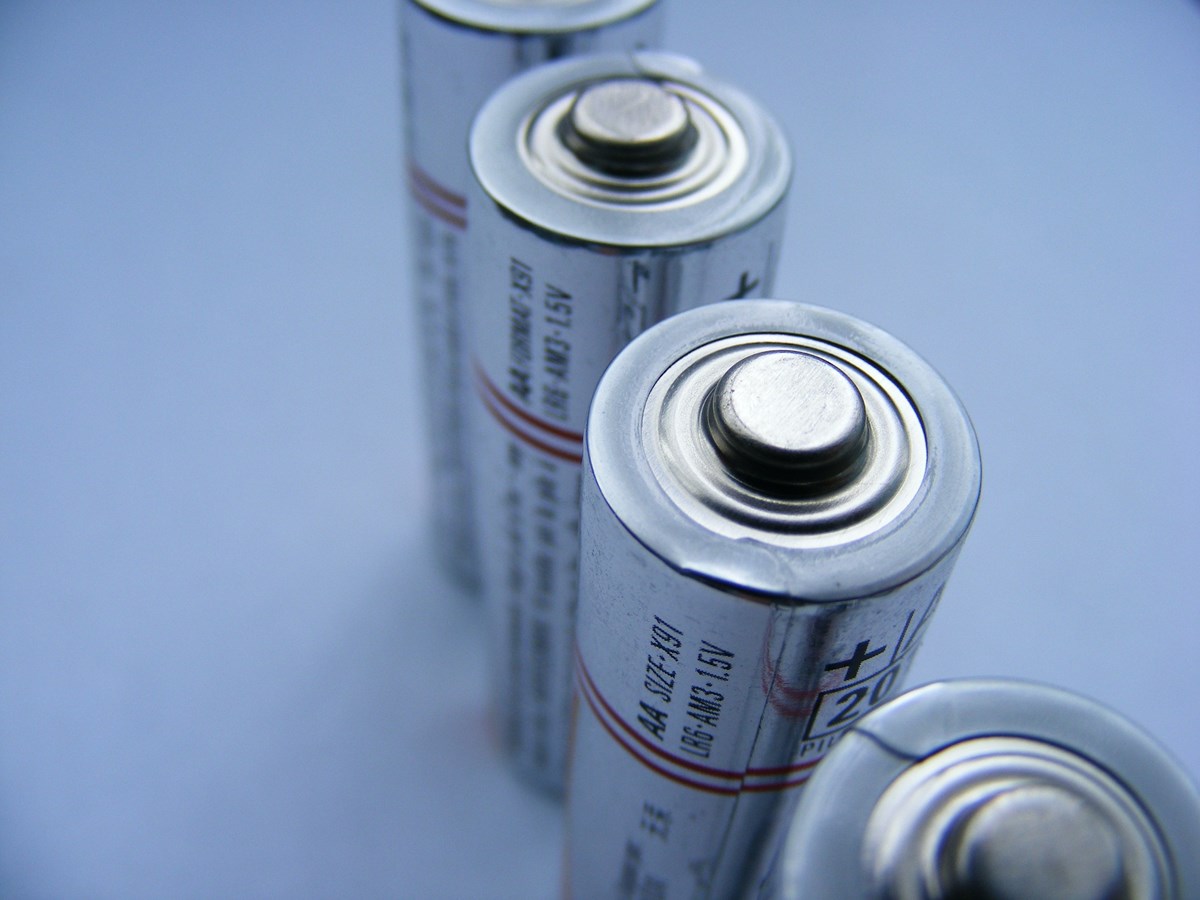Batteries are everywhere: in our cars, cell phones, remote controls, laptops, flashlights, toys, tools, solar farms—the list is practically endless.
Batteries are amazing, and humans have been using them for centuries. But they have their limitations and their problems. Rechargeable batteries need to store a lot of energy in a small space, release it in a controlled manner, and then repeat the process hundreds of times.
Of all metals, lithium has the lowest density, the greatest electrochemical potential, and the highest energy-to-weight ratio. This puts it as the top choice for battery technology. In 2019, John B. Goodenough, M. Stanley Whittingham, and Akira Yoshino were awarded the Nobel Prize in Chemistry for their development of lithium-ion batteries.
Though lightweight, energy-dense, and quick to charge, lithium-ion batteries are dependent on heavy-metal components like cobalt, nickel, and manganese. The mining of these metals is hard on both the environment and the miners who dig them. These ingredients make battery production fairly expensive, too.
Lithium-ion batteries are also susceptible to a reaction called “thermal runaway.” Remember those exploding cell phones? Yeah. That’s thermal runaway. It’s not just cell phone batteries that are risky, either. Laptops and electric vehicles are prone to thermal runaway, too.
Combine the above concerns with recycling challenges and their lamentably short life-cycles, and one can see why many people are hesitant to use them to replace fossil fuels for energy storage, even if they’d like to.
Reinventing the Battery
So why don’t we just make a better battery that stores more energy, doesn’t use heavy metals, and isn’t as prone to dangerous fires?
I'm confident that it’s in these companies’ best interests to do everything they can to follow through.
Look, I’m not an engineer and my understanding of chemistry puts the subject rather squarely in the realm of “probably magic.” I know just enough about science to know that I know very little about science.
Thankfully, improvements to battery technology don’t rely on people like me to figure them out.
2019 saw the announcements of new developments in battery technology that apparently can do exactly what I suggested. Some of the new designs include silicon wafers or sulfur and one uses simple seawater instead of heavy metals. None of the new developments are commercially available yet, but between feisty startups and big names like IBM and Mercedes-Benz, it appears to just be a matter of time before consumers will have these options available.
Again, I’m no scientist. I can’t predict how realistic the claims made in these announcements are, how well they’ll scale, or the feasibility of the timetables given. I am, however, confident that it’s in these companies’ best interests to do everything they can to follow through.
Gettin’ That Green
The people who run companies and invest their profits in research and development are just as keen to solve the shortcomings of conventional batteries as the population at large. Putting a cleaner, denser, less-expensive solution to energy storage on the market would be a huge win for customers and shareholders.
Cynics may say that this sort of arrangement is just environmentalism for purely profit-seeking reasons, but even if it is… so what?
Eco-conscious consumers would be happy because they’re spending less money to buy batteries that cause less pollution. More people would be able to afford the switch from fossil fuels to electric (and with more confidence in its safety). And due to the larger potential customer base, shareholders would probably see a tidy return on their investments.
Cynics may say that this sort of arrangement is just environmentalism for purely profit-seeking reasons, that these companies don’t actually care about the planet, just their bottom lines.
That might be true for some shareholders. But even if it is… so what?
Does it matter that people make money while also decreasing the number of Congolese child workers contracting deadly lung diseases in cobalt mines? Does it matter that some companies’ valuations increase while also encouraging lower CO2 emissions? Does it actually matter if some people’s salaries increase while also moving eco-friendliness from the realm of luxury goods to that of everyday staples?
We humans have a tendency to put an emphasis on intentions rather than outcomes. Economist Milton Friedman once famously said, “One of the great mistakes is to judge policies and programs by their intentions rather than their results.” Friedman was referring to glossing over the negative results of political policy because those imposing it meant well, but there is a universal truth in his assertion.
Harm does not cease to be harmful because of the good intentions of those causing the hurt. Benefits do not cease to be beneficial because of the “impure” motives of the benefactor.
That’s the beauty of market economies. By rewarding those who best solve the problems of others, regardless of their motivations, more people are helped and more progress is made than possibly could be done by requiring purity of intention from everyone.

